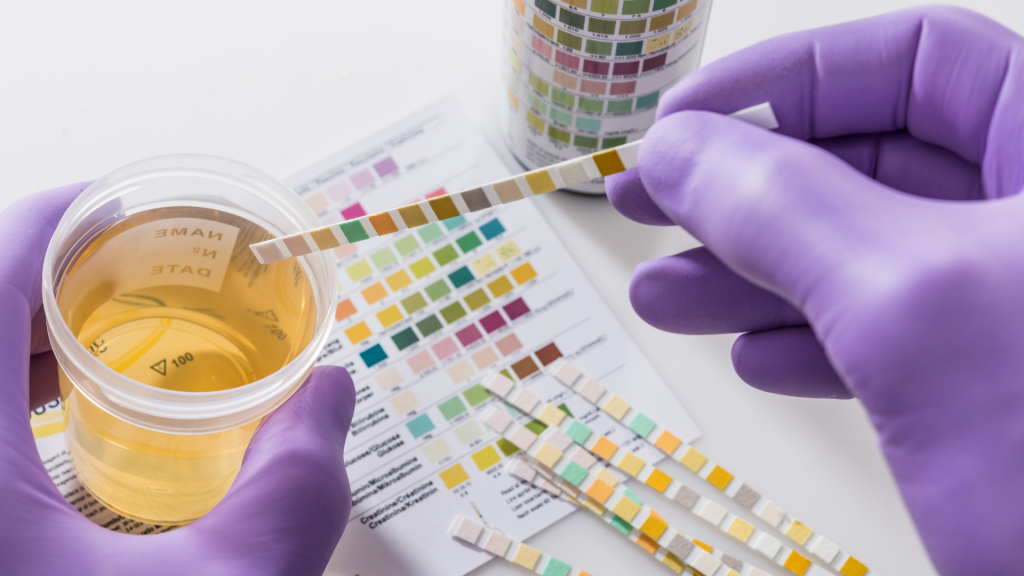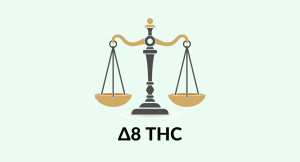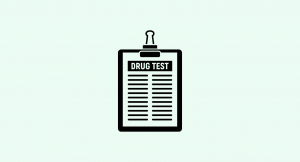Evidence based
Can Truck Drivers Use CBD?
Can truck drivers use CBD? This guide details the legal, medical, and professional implications of CBD use for commercial vehicle drivers.
For commercial vehicle drivers, the legality of cannabidiol (CBD) use on the job can seem muddy.
The short answer is that CBD is legal for truck drivers — but be careful what products you’re using.
In this article, we’ll answer a few questions you’re probably wondering as a commercial driver’s license holder. Between drug tests, differing laws among states, and the effects of CBD, there can be legal and professional implications to using CBD on the job.
Will CBD show up on a drug test? Does it matter if you’re crossing state lines with your products? Most importantly, is it safe?
Here’s everything you need to know.

Can Truck Drivers Legally Use CBD?
Yes, it’s legal for truck drivers to use CBD in general — but it’s not as clear-cut when it comes to using CBD while on the job.
There are issues with the legalities of traveling with CBD across the border (despite being legal federally and on both sides of a particular state) and the potential for high doses of CBD to impair driving.
Ultimately, CBD is technically legal for truck drivers to use at work, but you should avoid bringing your CBD with you while crossing into states like North Dakota or Idaho.
Additionally, the company you work for may have a policy banning all cannabis products — including CBD, regardless of state or federal laws.
Is CBD Oil Legal in the United States?
The legality of CBD is stipulated by one important requirement — the products must contain a concentration of 0.3% or less THC.
Most CBD products do contain trace amounts of THC because they’re extracted from the cannabis plant. If that concentration stays below the 0.3% threshold, it’s considered a CBD product. Otherwise, the product may be classified as THC and may be illegal in some states.
Delta 9 THC or marijuana products are illegal to use both at work and at home while driving any motor vehicle.
Traveling Between States with CBD
Because CBD is legal in all 50 states, it is perfectly legal to carry it across state lines.
However, it’s important to make sure you’re purchasing actual CBD — with a THC concentration below 0.3% — so you don’t inadvertently carry THC into a state where it’s illegal.
There are also some reports of people getting hassled for carrying CBD across the border. While it’s not illegal, border officials may want to test the product using analysis machines to make sure it’s legal. This can take a long time to complete and is a real annoyance to truckers trying to stick to a tight schedule.

Why Would Truck Drivers Want to Use CBD?
There are numerous reasons that truck drivers would gravitate toward CBD. The benefits of CBD range from anxiety reduction to better sleep and so much more — all evidenced by scientific studies [1].
With the irregular and demanding lifestyle of driving commercial vehicles, CBD may help workers reduce some of the intense negative impacts of the job:
1. Irregular Sleep Cycles
Between long-haul drives and overnight shifts, truck drivers experience irregular sleep schedules when they’re on the job. Especially for drivers who work for several days a week and then have several days off, establishing a restful sleep cycle can be challenging, if not impossible. According to the National Institute of Health, more than 20% of truck drivers report chronic sleep disturbances [2].
CBD has been shown to help people fall asleep faster, sleep longer, and get a better rest [3]. When you only have so many hours to rest before your next shift, a dose of CBD can help you fall asleep on demand and get a better night’s sleep overall.
The increased sleep time after taking CBD has also been shown to help improve sleep patterns [4]. When you rest longer, your body goes into the REM state for a more efficient, better rest that will keep you alert and awake for your next shift.
2. Anxiety and Depression
Whether your stress and anxiety come from the job itself, being away from family and friends, or the irregular schedule, commercial vehicle driving is a demanding and important profession. A study from the NIH reports that over 26% of truck drivers experience depression, and over 14% have anxiety [2].
CBD is known to reduce anxiety and help users feel calmer and more relaxed. It also helps you get a better night’s sleep — a lack of which is one major cause for anxiety [5]. CBD has also been instrumental in treating depression as it can act as an antidepressant, increasing serotonin levels [6].
3. Pain or Discomfort from Driving
When you’re sitting in the same position for long periods of time, you’re likely to experience pain from skin irritation, muscle aches, and joint discomfort. This pain can come from inflammation, lack of circulation, or irritants like an itchy seatbelt.
CBD can help reduce pain by reducing inflammation and relaxing the muscles. Especially when used as a salve or topical cream, CBD has been shown to decrease inflammation and pain in the muscles and joints [7].
4. Hypertension (High Blood Pressure)
More than one-third of drivers worldwide experience hypertension — also known as high blood pressure [8].
This can occur because of genetics or diet, but it can rapidly escalate if you spend all day sitting in one place. Truck drivers are often relegated to fast food diets as well, which can lead to high blood pressure and diabetes.
Studies show that there are many cardiovascular benefits to using CBD, not the least of which is reduced blood pressure [9].
CBD relaxes your blood vessels and promotes better blood flow throughout the body. It can also help reduce pancreatic inflammation, which can result from diabetes caused by sustained high blood pressure [10].
CBD & Drug Testing
CBD is not a drug that is tested for on the typical employment drug test. However, because it contains trace amounts of THC, it’s theoretically possible to test positive for marijuana while consuming CBD products.
To avoid this, make sure to always check that your CBD products contain less than 0.3% THC concentration. Opt for broad-spectrum CBD oils or CBD isolate oils only and avoid full-spectrum products that contain trace amounts of THC.
At the end of the day, there is some risk in using CBD if your employer regularly drug tests (which most truck driving operations do). If CBD did cause a positive drug test result, it would not stipulate that the result was due to CBD use rather than marijuana.
As such, consider the risk before choosing to use CBD as a commercial truck driver.

Does CBD Affect Driving?
In isolation, CBD will not impair your driving abilities.
However, if you mix CBD with THC, the THC may impact your driving. It’s also possible that CBD can interact with medications you’re taking, so be sure to check for interactions before you take it.
CBD is known for its ability to promote relaxation as well. In some cases, this can improve driving by helping you remain calm and focused — but it could also make driving worse.
Listen to your body and avoid taking CBD if you’re already feeling tired. CBD is a very useful supplement for alleviating pain and anxiety, but it’s not so useful if you’re trying to stay awake.
What’s the Dose of CBD?
The dose of CBD that will work best for you depends on your weight, desired strength, and CBD product. Depending on the strength and form factor of the product you choose, you may take anywhere from one CBD gummy to five drops of a CBD Oil tincture or any other dosage.
Our CBD dosage calculator makes it easy to understand the right amount to take based on your weight. As truck drivers, we recommend taking a mild or moderate strength dose to reduce the risk of sleepiness.
Final Thoughts: Can Truck Drivers Take CBD?
Put simply, yes, truck drivers can take CBD. The only real risk to a truck driver is the very small potential of testing positive for THC on a drug test.
The health benefits for truck drivers’ sedentary lifestyle, irregular schedules, and mental health concerns include reduced hypertension, better sleep, and elevated moods.
For truck drivers, we recommend CBD isolate or broad-spectrum CBD. The main reason for this is that full-spectrum CBD products have a higher likelihood of containing THC, which could lead to a positive drug test.
Be sure to find the right dose for your use — like a dose for during your driving shift versus during your sleep shift — to make sure you get the most out of CBD.
References
- Blessing, E. M., Steenkamp, M. M., Manzanares, J., & Marmar, C. R. (2015). Cannabidiol as a potential treatment for anxiety disorders. Neurotherapeutics, 12(4), 825-836.
- Shattell, M., Apostolopoulos, Y., Collins, C., Sönmez, S., & Fehrenbacher, C. (2012). Trucking organization and mental health disorders of truck drivers. Issues in mental health nursing, 33(7), 436-444.
- Russo, E. B., Guy, G. W., & Robson, P. J. (2007). Cannabis, pain, and sleep: lessons from therapeutic clinical trials of Sativex®, a cannabis‐based medicine. Chemistry & biodiversity, 4(8), 1729-1743.
- Babson, K. A., Sottile, J., & Morabito, D. (2017). Cannabis, cannabinoids, and sleep: a review of the literature. Current psychiatry reports, 19(4), 1-12.
- Sagaspe, P., Sanchez-Ortuno, M., Charles, A., Taillard, J., Valtat, C., Bioulac, B., & Philip, P. (2006). Effects of sleep deprivation on Color-Word, Emotional, and Specific Stroop interference and on self-reported anxiety. Brain and cognition, 60(1), 76-87.
- R de Mello Schier, A., P de Oliveira Ribeiro, N., S Coutinho, D., Machado, S., Arias-Carrión, O., A Crippa, J., … & C Silva, A. (2014). Antidepressant-like and anxiolytic-like effects of cannabidiol: A chemical compound of Cannabis sativa. CNS & Neurological Disorders-Drug Targets (Formerly Current Drug Targets-CNS & Neurological Disorders), 13(6), 953-960.
- Hammell, D. C., Zhang, L. P., Ma, F., Abshire, S. M., McIlwrath, S. L., Stinchcomb, A. L., & Westlund, K. N. (2016). Transdermal cannabidiol reduces inflammation and pain‐related behaviours in a rat model of arthritis. European Journal of Pain, 20(6), 936-948.
- Krishnamoorthy, Y., Sarveswaran, G., & Sakthivel, M. (2020). Prevalence of hypertension among professional drivers: Evidence from 2000 to 2017—A systematic review and meta-analysis. Journal of postgraduate medicine, 66(2), 81.
- Jadoon, K. A., Tan, G. D., & O’Sullivan, S. E. (2017). A single dose of cannabidiol reduces blood pressure in healthy volunteers in a randomized crossover study. JCI insight, 2(12).
- Lehmann, C., Fisher, N. B., Tugwell, B., Szczesniak, A., Kelly, M., & Zhou, J. (2016). Experimental cannabidiol treatment reduces early pancreatic inflammation in type 1 diabetes. Clinical hemorheology and microcirculation, 64(4), 655-662.















